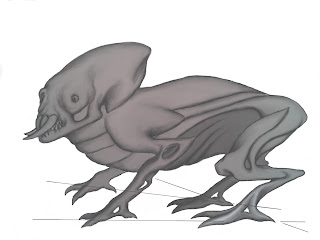An exciting new release in our GM's Maps range, 'Traditional Members Club'. Popularised in the Victorian period the first clubs actually appeared in London in the Georgian period and many still exist today.
The first Gentlemen's clubs were established in the upmarket west end of London. These clubs were open only to the aristocracy and the Landed gentry. With names like 'Whites' and 'Boodles' they took on some of the roles of coffee houses.
As the 19thcentury progressed there was something of an explosion in the number of traditional members clubs.
Clubs like 'The Reform Club' (Membership of which was restricted to those who pledged to support the 1832 reform act and thus included both peers of the realm and gentlemen of middle-class status) and the purely fictional Diogenes club of which the equally fictitious Sherlock Holmes was a member sprang up all over. By the 1880s London alone had over 400 such members clubs catering only to men and only to those of the middle and upper classes. By now clubs were appearing all over the world form the USA to India.
With the expansion of the numbers of clubs came an expansion in their services as well. These 'Reform clubs' offered middle-class men all the comforts of an aristocratic home. Gambling and coffee were still offered as was an extensive staff employed by the club for the comfort of the members, but many of these new clubs also offered accommodation for members who wished to stay the night (or several nights). At this time some of the older clubs also began to offer overnight accommodation, although this was by no means adopted by all of the original clubs.
By the 21st century, several of the remaining clubs had lifted the embargo on Women joining and so opened up to a wider range of members.
From Sherlock Holmes to Phileas Fogg and Hercule Poirot some of the greatest fictional characters have been members of such clubs, and now your PCs or their Antagonists can too!
Find this product Here
From Sherlock Holmes to Phileas Fogg and Hercule Poirot some of the greatest fictional characters have been members of such clubs, and now your PCs or their Antagonists can too!
Find this product Here
There are a wide number of ways to use the Traditional Gentlemen's Club in your RPG campaigns and we encourage you to let your own imagination run wild. We do have a few suggestions for you but don't feel these are the only possibilities. A usual we would love to hear from anyone who has a unique or unusual idea for how to use the map in their scenarios.
The club may provide a home base for the PCs. The club can be used in much the same way as the stereotypical 'Meet at the Inn' introduction often used in fantasy scenarios, where the PCs are all members of the club and it is this membership that draws them together to begin their joint adventure or investigation. Perhaps a fellow member is in trouble and the PCs represent other members who 'Refuse to let a chap down, especially when he is a member of our club, by George!'.
Perhaps the club itself wants to find some valuable treasure or solve some mystery and the party are members who have stepped up tot he challenge. Members of the club may be patrons or sponsors of the party and may set them a task which leads to their adventures. Of course, some of the clubs resources, such as the library may well be placed at the parties disposal.
Perhaps the club itself wants to find some valuable treasure or solve some mystery and the party are members who have stepped up tot he challenge. Members of the club may be patrons or sponsors of the party and may set them a task which leads to their adventures. Of course, some of the clubs resources, such as the library may well be placed at the parties disposal.
A late night discussion in the par may fire the imagination of party members who determine to undertake some great tasks, such as circumnavigating the globe, or perhaps other members lay a wager that the party are not able to complete some challenge or other.
The club may also be the sight of a haunting or the scene of some mystery (a murder or theft, perhaps) that the party determine (or are retained) to investigate.
Alternatively, of course, it may be the PCs antagonists who are members of the club. Perhaps the party are inspired to steal something from the clubs vault or some work of art upon the walls of the drawing room or standing in the coffee room.
They may be planning to confront some arch nemesis who rarely leaves the confines of his club, or they may need to read some rare tome that the club has in its library but will not let them see. Perhaps the rumours of occult rituals or disturbing activities in the club are not just gossip and it is up to the party to put a stop to it.




